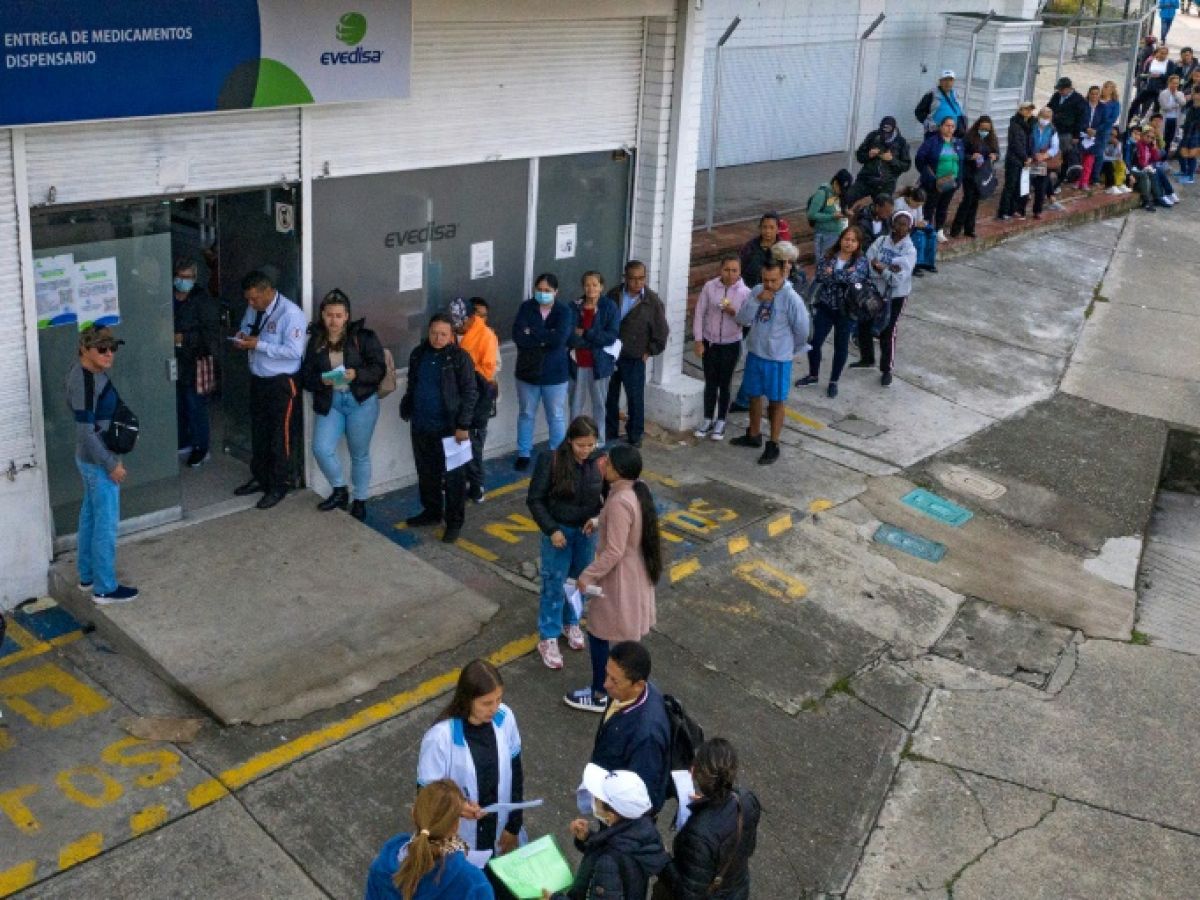Between problems with the supply of reimbursed drugs, a global shortage of certain molecules and an underfunded healthcare system, Colombians must arm themselves with patience and perseverance to seek treatment.
Nataly Ahumada is desperately waiting to receive pills for her son, who has multiple disabilities and a condition that causes epileptic seizures.
Since her health insurance system doesn't accept them, she's forced to buy them out of pocket at a pharmacy. And they're expensive.

Without his medication, Mateo Ahumada, 21, "can go into a state of convulsion and an induced coma," his mother explains from her apartment in a working-class neighborhood in southern Bogota.
Albenis Muse was requesting "a medicine that had been on hold for two months" for her brother, who suffers from diabetes, epilepsy and thyroid problems.
"Last month, they didn't give it to me. This month, I've already come three times," he said, waiting unsuccessfully in a long queue outside the clinic.

But this time it was the right one for the 56-year-old woman, finally relieved as she left the dispensary laden with boxes of pills, and who admits that the presence of journalists helped her obtain the medication.
This drug crisis, born out of a global shortage of molecules following the Covid-19 pandemic, has worsened in a country whose semi-public, semi-private health system is suffocated by a lack of money.
The World Economic Forum (or Davos Forum) had warned of shortages in several countries, the war in Ukraine affecting "supply chains" and inflation.
– From one pharmacy to another –
In Colombia, private entities (EPS) act as intermediaries between the state and hospitals, managing the administrative records of members, coordinating their access to health services and dispensaries for the delivery of medication.

Since coming to power in 2022, left-wing President Gustavo Petro has aspired to transform this system and make it public. But he doesn't have a free hand in Parliament. Experts agree that it needs to be reformed, but question how the government plans to do so.
According to an analysis by Funcion Publica, a Colombian media outlet, the money the state pays to EPS for patient care has become insufficient in the face of rising drug prices.
Clara Rodriguez, director of the Colombian Pharmaceutical Industry Association, blames government policies for exacerbating the deficit faced by private entities. Late payments from laboratories and importers have "interrupted" the drug supply chain, she told AFP.
For his part, Gustavo Petro has repeatedly accused the EPS of corruption, denouncing a "permanent theft" of public money.
Patients are the first to suffer the consequences of supply disruptions.

José Gomez, 66, wasn't as lucky as Albenis Muse. "Sometimes I wait five or six hours, and there's no preferential queue for the elderly," he sighs. For him, taking his medication is vital: "If I stop, I risk a heart attack or blood pressure problems."
A study by the national body that oversees compliance with health system regulations (Superintendencia de salud) shows that claims for service failure increased by 1,301 points between 2019 and 2024.
– A “failing” system –
Faced with this protracted crisis and the lack of a solution, some Colombians – 98% of whom are affiliated with a health organization, according to data from the supervisory ministry – have no other choice but to buy them out of pocket, when they can afford it.

"It's really terrible because I can't afford it," sighs Nataly Ahumada, Mateo's mother. "Either I cut back on food, utilities, or rent. I'm all alone, and if I decide to pay (for medication), I'll have to deprive my other children of other things."
Health organizations and unions denounce a "failing" system that particularly affects patients suffering from chronic, orphan and rare diseases.
According to Dr. Ruben Luna, surgeon and president of the Colombian Association of Organ Transplantation, some patients face a real danger. This type of therapy "cannot be suspended at any time," he says. Any delay could result in "the loss of the organ" and could put the patient's life "in danger."
At the end of January, the Colombian Constitutional Court declared the resources allocated to health financing "insufficient" and asked the Ministry of Health to readjust them to guarantee quality services to the population.
